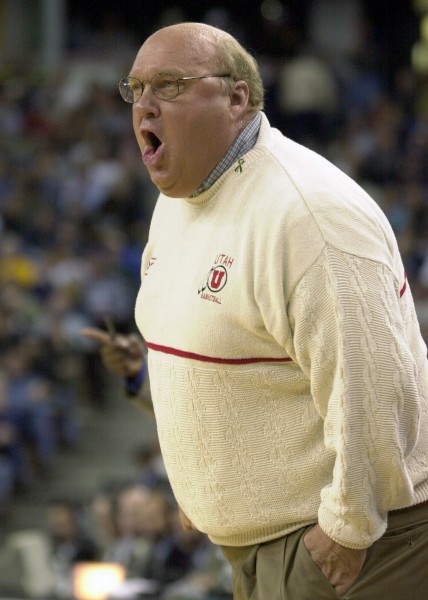Utah Week: Evaluating The Recent Past
Posted by AMurawa on August 28th, 2012The Utah basketball program is at an all-time low. Last year’s 6-25 record was the worst single season in the history of the program, with a winning percentage below .200. The 1972-73 Ute team that won just eight games was the most recent team in school history to fail to garner at least double-digit wins. You have to go all the way back to 1928-29 to find a Utah team with fewer wins than last year’s squad, and that came in a season with a 17-game schedule. Coupled with the previous two seasons, the Utes now have gone three consecutive years without a winning record for the first time since that same 1928-29 team. All of which combines to make that opening statement — that the Utes are at a program low — fact, not merely opinion.

In The Eight Seasons Since Rick Majerus Left, Utah Has Reached Lows Unprecedented In Program History
The good news is, however, when you reach bottom, you’re usually able to push off and begin a new ascent. Trouble is, for a program with four Final Four appearances including one national title, this team is in previously un-swum waters. After years in the Mountain West or the WAC or the Skyline or Rocky Mountain conferences before those, the Utes are now in the Pac-12, playing against a level of competition higher than they’ve ever seen before. So, in the middle of a time of celebration around the athletic department over the money and exposure that comes as a part of their new conference affiliation, the Utes find themselves having to prove that they are capable of fielding a basketball program that can compete year in and year out with the major program with whom they are now affiliated.
The historical record indicates that the Utes will be back. As recently as 1997-98, Utah, under then head coach Rick Majerus, was up by double figures at halftime of the national championship game. However, six seasons (and five NCAA Tournament appearances) later, Majerus bowed out in SLC due to health concerns and the athletic department made the first mis-step in hiring his replacement when it opted for little-known Ray Giacoletti to take over for the legend. At first, it looked like the successes around the Huntsman Center would continue unabated, as the Utes won the Mountain West conference, piled up a 29-6 record, and advanced to the Sweet Sixteen, their deepest penetration in the NCAA Tourney since that 1998 title game run. But two straight losing seasons followed and a program that was used to success (there had been 12 NCAA Tournaments in the 16 years since their most recent losing season) was ready to change direction again after just three years.
The next hire seemed much safer than the Giacoletti gamble when Utah opted for Jim Boylen, who had made his name by spending two separate stints as a valuable assistant to Tom Izzo at Michigan State sandwiched around more than a decade worth of experience as an assistant at the NBA level. But, much like Giacoletti, after getting off to a sound start (he turned the Utes into a winning ballclub again in his first season, then won the Mountain West and advanced to the NCAA Tourney in his second year), two straight losing seasons did him in. Worse yet, when he was finally let go in 2011, the Utah roster was in shambles. Over the course of consecutive offseasons, the program lost 12 different players prior to the expiration of their eligibility. As a result, when Larry Krystkowiak was hired as the 14th head coach in program history (not counting three assistants who had to take over teams midseason in the wake of a Majerus health problem), he walked into a bare cupboard, all of which counts as explanation for last season’s debacle, an eventuality that can hardly be lain at the feet of Krystkowiak.
Still, in the last decade of basketball at Utah, there have been six different occasions where the Utes finished in the back half of their conference and as many sub-.500 records as winning ones. And while Krystkowiak laid down the law last year and has begun rebuilding the roster, the expectations for the Utes next year aren’t a lot higher than they were last year. You can bet your mortgage on the fact that UU will win more than six games (if for no other reason than the schedule dictates it – but we’ll get to that later), but when the preseason prognostications for the Pac-12 come out, it is likely that the vast majority of those predictions will pick the Utes 12th. Utah fans are smart and savvy when it comes to basketball, but they’re also used to success. They’ll give Krystkowiak the benefit of the doubt, knowing where this program is coming from, but if the turnaround in Salt Lake is too slow, the coaching carousel could get fired up once again.










































